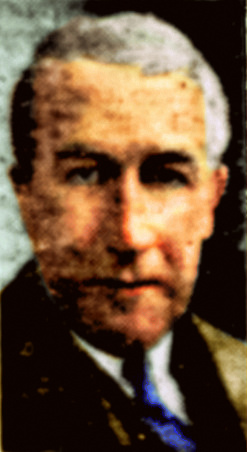He knew about the invasion –
Super-secret of the war kept by a sergeant major!
Canadian finds vital paper in Citadel after last Roosevelt-Churchill conference
Québec, Canada (UP) –
Military authorities admitted today that a mere sergeant major of the Canadian Army shared with the Allied High Command what was for months the super-secret of the war – the plans for the invasion of Normandy.
The hero of this drama was Sgt. Maj. Émile Couture, a French-Canadian, whose job it was to issue stationery at last year’s Québec Conference of Prime Minister Churchill and President Roosevelt.
Imbued with the French sense of economy, he was making an inspection of the conference quarters at the conclusion of the meeting to collect unused paper. In one of the rooms of the Chateau Frontenac, then as now the working and residential headquarters for the Anglo-American military staffs, Couture found an interesting memorandum.
The moment he read it, he was transported from his prosaic role of a garrison wheelhorse into the inner councils of the high and mighty. Couture gasped. It was in black and white – the alternative dates for the invasion of Normandy, the number of troops to be employed, how they would be transported in so many ships and how they would be supported from the air and sea.
The operational outline for the boldest, most difficult campaign of the war, was in HIS hands – a sergeant major!
Couture jammed the paper into an envelope and made with all haste to Canadian Army District Headquarters at the Citadel. There, an officer examined them. He uttered the French equivalent of “Wow!”
Given British medals
Couture and an officer were taken secretly to Washington. There in the inner sanctum of the top strategists – perhaps the Allied Combined Chiefs of Staff – they turned over the paper and took a solemn oath of secrecy.
Couture discovered the memorandum in the conference room of the chiefs of staff. It was said to have belonged to an American general. There was a report that the general had been relieved of his duties but there was no one in authority here who knew anything about it.
For his scrupulous observance of the oath, Sgt. Maj. Couture received the Medal of the British Empire. The officer, Maj. C. E. Gerney, was also decorated.
‘Better not talk!’
L’Action Catholique, one of Canada’s most influential newspapers, first revealed the story of Couture’s secret. The public relations officers of the local military district confirmed it.
Today Sgt. Maj. Couture was not available for interviews. Explained an officer:
If he talks, he’ll be tossed in the guardhouse and the key will be thrown away.

